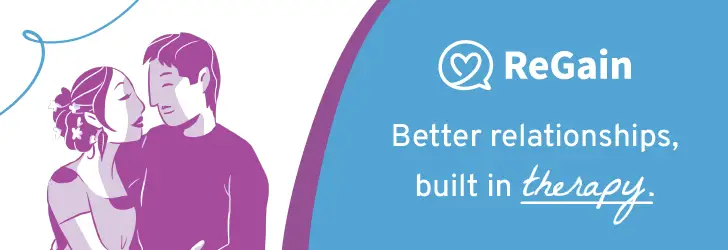As a BetterHelp affiliate, we receive compensation from BetterHelp if you purchase products or services through the links provided
Have you ever noticed that when you gaze into the eyes of someone you love, their pupils seem to grow larger? This fascinating phenomenon is not just a figment of your imagination; scientific evidence supports the idea that pupil dilation occurs when we’re attracted to another person. Pupil size can be affected by various factors, including emotional and physiological responses, but it’s especially interesting to explore the connection between love and pupil dilation.
The science behind this phenomenon is rooted in the autonomic nervous system, which controls our fight-or-flight response and other involuntary bodily functions. When we’re attracted to someone, our brain releases chemicals, such as oxytocin and dopamine, which contribute to feelings of love, trust, and happiness. In response to these chemicals, our pupils can expand as a reflection of this heightened emotional state. This increase in pupil size serves multiple purposes, including allowing more light to enter our eyes, which can make the object of our affection appear visually more appealing.
Key Takeaways
- Pupil dilation occurs when we look at someone we love or are attracted to, resulting from our brain’s chemical reactions.
- Our autonomic nervous system, responsible for involuntary bodily functions, plays a major role in pupil dilation during attraction.
- Expanded pupils allow more light to enter the eyes, enhancing the visual appeal of the person we are attracted to.
 The Science Behind Dilating Pupils
The Science Behind Dilating Pupils
Role of Light in Pupil Dilation
In everyday situations, pupils dilate primarily in response to changes in light. The main function of pupils is to regulate the amount of light entering the eye, ensuring optimal vision. When exposed to bright light, pupils constrict to limit light entering the eye. In dim conditions, pupils dilate to allow more light in, improving visibility. The autonomic nervous system regulates this process and involves several neurotransmitters, such as norepinephrine and serotonin.
Effect of Emotions on Pupil Size
Besides light, pupil size can also be influenced by a person’s emotions. The sympathetic nervous system, a branch of the autonomic nervous system, controls this involuntary process. When an individual experiences strong emotions, such as fear or excitement, the sympathetic nervous system releases norepinephrine. This causes the pupils to dilate, allowing heightened visual perception in response to emotional stimuli.
Interestingly, the sight of someone we love can also cause our pupils to dilate. Our engaging emotions during such moments trigger the release of various neurotransmitters and hormones, subsequently impacting pupil size.
Role of Hormones in Pupil Dilation
The dilation of pupils in the context of love is closely linked to “love hormones,” such as oxytocin and dopamine. Oxytocin, often referred to as the “cuddle hormone” or “bonding hormone,” significantly influences social behavior, attachment, and trust. It is released during physical contact, such as hugging or holding hands, and plays a critical role in forming emotional bonds between individuals.
Dopamine, on the other hand, is a neurotransmitter linked to pleasure, reward, and motivation. It is released during activities that bring joy and satisfaction, such as eating, exercise, or romantic encounters.
Both oxytocin and dopamine contribute to the dilation of pupils when looking at someone we love. These hormones stimulate the sympathetic nervous system, increasing norepinephrine levels and pupil dilation. In essence, dilated pupils signify that an individual’s brain processes love-related emotions and releases feel-good hormones.
Pupil Dilation and Love
Physical Reaction of Eyes When in Love
When people look at someone they love, their pupils often dilate. This dilation is a physical reaction to love, attraction, and arousal. Pupil dilation happens not only in response to sexual attraction but also as a sign of trust and bonding between partners. In dim or low-light environments, the eyes also naturally dilate to allow more light in, making it easier to see. However, when looking at a loved one, the dilation goes beyond this basic need for more light.
Dilation of pupils occurs due to the activation of the sympathetic nervous system, which is responsible for the body’s ‘fight or flight’ response. In the context of love and attraction, this response can be attributed to the excitement or anticipation of being with the object of one’s affection.

Understanding Mutual Eye Contact
Mutual eye contact is essential to building trust and establishing a connection with one’s partner. Prolonged eye contact can signal genuine interest and create a sense of intimacy, leading to the dilation of the pupils. Eye contact is a form of body language that people engage in consciously or unconsciously, and it can reveal a great deal about an individual’s feelings and motivations.
In relationships, maintaining eye contact is vital, as it often reflects a person’s emotional state and level of engagement. When two people share profound and meaningful eye contact, it helps to create lasting bonds and fosters feelings of love and attachment.
While pupil dilation can be attributed to various factors, the connection between dilated pupils and feelings of love is undeniable. The eyes provide a window into one’s emotions, making it all the more important to be in tune with one’s partner’s body language and eye contact.
Physical Factors Influencing Pupil Dilation
Effect of Medications and Substances
Different medications and substances can significantly impact pupil size, with some causing dilation, medically termed as mydriasis. For instance, drugs like antihistamines or certain recreational drugs may cause pupils to dilate. Conversely, some medications may cause constriction of the pupils. It is vital to be aware of any medication or substance’s potential side effects, as they might affect pupil dilation.
Role of Fear and Stress on Pupil Size
Fear and stress can influence pupil size, with the fight-or-flight response playing a significant role in this process. When an individual feels threatened or stressed, the body releases hormones such as adrenaline that cause the pupils to dilate. This physiological response allows more light to enter the eyes, enhancing one’s ability to see in a stressful situation. Thus, pupil dilation may be a protective mechanism triggered by fear or stress.
Influence of Health Conditions and Injury
Various health conditions and injuries can affect pupil size. For example, a brain injury, infection, or stroke might impact the nerves responsible for controlling pupil dilation and constriction, leading to changes in pupil size. Eye injuries or trauma can also cause changes in pupil size, as they might directly affect the muscles controlling pupil dilation. Furthermore, certain diseases or infections, like meningitis, could lead to inflammation in the brain, altering the normal function of the nerves responsible for pupil size. In these cases, irregular pupil size or dilation could be an important diagnosis symptom.
Psychological Factors Influencing Pupil Dilation
Understanding Attraction Through Pupil Dilation
Pupils naturally dilate when an individual looks at someone they find attractive. This dilation is a reaction to emotional stimuli and a response that is often subconscious. Dilated pupils are an indicator of arousal and attraction as the body prepares itself to focus on a potential partner. Interestingly, research has shown that other factors, such as the menstrual cycle in women and the consumption of alcohol can alter this physiological response.
Attraction and lust are linked to pupil dilation, and studies have demonstrated a connection between pupil size and perceived attractiveness. A larger pupil makes the eyes appear more open and inviting, which may be seen as a sign of receptiveness to another person. Anxiety can also play a role in pupil dilation, as individuals may feel tense or nervous about their appearance when facing someone they find attractive.
The Mystery of ‘Bad Boys’ and Dilated Pupils
The link between dilated pupils and attraction can be applied to the concept of the attractive “bad boy” persona that some people find alluring. These individuals often exhibit a sense of danger and excitement, which can evoke a strong emotional response. Thus, the allure of “bad boys” is likely influenced by the automatic physiological response of pupil dilation when experiencing heightened emotions or attraction.
In summary, the psychological factors contributing to pupil dilation during attraction include various aspects of love and emotion driven by the appearance and persona of a potential partner. Pupil dilation is a sensitive indicator of attraction, affection, and arousal, and observing these changes can provide valuable insights into the complex nature of human relationships.

Practical Application and Observation of Pupil Dilation
Deciphering Body Language and Non-Verbal Cues
Pupil dilation is a fascinating phenomenon with several practical applications. One key use lies in understanding body language and non-verbal cues. When someone looks at a person they are attracted to, their pupils often dilate. This natural reaction can signify attraction, as the brain releases chemicals like dopamine, which stimulate the retina and cause pupil dilation.
To observe this phenomenon, individuals can look at someone’s eyes during conversation. If their pupils noticeably expand when looking at another person, this may indicate a sense of attraction. However, it is essential to consider other potential causes of dilated pupils, such as drug use or changes in lighting. Additionally, be mindful of the potential for anisocoria, a condition where one pupil is larger than the other, as it may affect appearance and perception.
Clinical Diagnosis and Treatment Using Pupil Dilation
Pupil dilation is also crucial in clinical settings, as it can help diagnose various medical conditions. Ophthalmologists, eye doctors trained in diagnosing and treating eye diseases, often use eye exams to evaluate pupil dilation. These evaluations typically include assessing eye muscles and scanning for eye injuries. Some common causes of dilated pupils are:
- Brain injuries
- Congenital aniridia
- Migraines
- Seizures
- Adie’s pupil
Table 1: Conditions causing pupil dilation
| Condition | Description |
|---|---|
| Brain injuries | Trauma to the brain can cause pupils to dilate, potentially indicating damage to important brain regions. |
| Congenital aniridia | A rare genetic disorder causing the absence of the iris and resulting in enlarged pupils. |
| Migraines | Painful, intense headaches that can cause abnormal pupil dilation. |
| Seizures | Sudden, uncontrollable electrical activity in the brain causes periods of abnormal behavior and pupil dilation. |
| Adie’s pupil | A neurological disorder causing one pupil to be larger than the other and to respond slowly to stimuli. |
Medications can sometimes lead to pupil dilation, such as antidepressants. Treating the underlying condition can potentially resolve abnormal dilation. When observing a patient’s pupils, doctors consider the following:
- The pupil’s size
- The reactivity to light
- The regularity of the pupil shape
- The balance in size between the two pupils
Doctors can determine appropriate treatments for the identified conditions by examining these factors. Pupil dilation is a valuable diagnostic tool for ophthalmologists and other medical professionals when assessing eye health and overall well-being.
Frequently Asked Questions
What causes pupil dilation in the presence of a loved one?
Pupil dilation occurs due to the release of certain chemicals in the brain, such as oxytocin and dopamine. These chemicals are associated with feelings of attraction and happiness, which leads to the autonomic nervous system increasing pupil size.
Is pupil dilation a sign of attraction?
Pupil dilation can signify attraction, but it is not always definitive. Other factors, such as lighting and emotions, can also cause the pupils to dilate. It is important to consider the context when interpreting this body language cue.
What emotions can lead to dilated pupils?
Various emotions can cause dilated pupils, including excitement, fear, surprise, and arousal. The underlying reason is the sympathetic nervous system activation, which prepares the body for action and increases pupil size for better vision.
How do dilated pupils differ from normal pupils?
Dilated pupils are larger than normal, allowing more light to enter the eye. This change in size maximizes visual acuity in low-light conditions or when experiencing heightened emotions. Normal pupils can also change size in response to light, but the reaction to emotional stimuli is less pronounced.
What is the meaning behind dilated pupils?
Dilated pupils signal a heightened emotional state. In the context of romantic attraction, they can indicate interest and arousal. However, dilated pupils can also result from other emotions or factors, so it is essential to interpret pupil dilation within the broader context of behavior and body language.
Do pupils shrink when looking at someone you dislike?
Pupils can constrict when looking at something unpleasant or experiencing negative emotions such as dislike or anger. However, just like dilation, constriction of pupils might have other causes, so it’s crucial to consider additional behavioral cues to make an accurate interpretation.
Jacob Maslow: Unraveling Emotions and Fostering Resilience
Jacob Maslow, the mind behind the intriguing “Why Do Pupils Dilate When You Look at Someone You Love: Unveiling the Science,” isn’t just an analytical thinker but a soul deeply entwined with life’s highs and lows. While he leans on Lexapro for mental equilibrium and wears his therapy veteran badge with honor, he has navigated the stormy seas of a contentious relationship. Facing the challenges of an ex-partner’s extreme narcissism and the consequent estrangement from his children, Jacob has become an embodiment of resilience. His daily long walks serve as an escape and a rejuvenating ritual amidst the chaos. Through his writings on mental health and the intricacies of narcissism, Jacob aims to be a guiding light for others in similar straits. His unwavering belief is that triumph over mental health struggles is attainable for all. Additionally, his legal website stands as a bastion of support for those ensnared in the murky waters of defiant spouses and challenging custody battles.
- Breaking the Silence: Why Men’s Mental Health Matters More Than Ever - April 15, 2025
- How to Transform a Home’s Patio Space into a Relaxing Space - March 23, 2025
- 5 Strategies to Use a Cell Phone to Help Manage Your Stress - March 23, 2025
This site contains affiliate links to products. We will receive a commission for purchases made through these links.


 The Science Behind Dilating Pupils
The Science Behind Dilating Pupils


